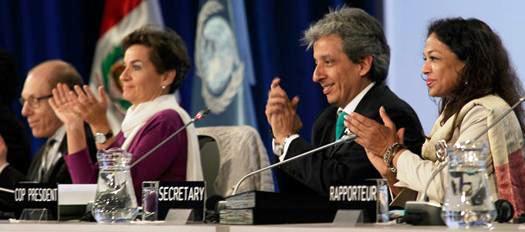 San Jose, California – Cisco issued its eighth annual Corporate Social Responsibility (CSR) Report on November 14, which details the company’s efforts to apply its technology and expertise to address environmental, social, and governance issues. The fiscal year 2012 (FY12) CSR Report underscores Cisco’s approach and commitment to acting responsibly, operating sustainably, and making positive contributions to communities around the world.
San Jose, California – Cisco issued its eighth annual Corporate Social Responsibility (CSR) Report on November 14, which details the company’s efforts to apply its technology and expertise to address environmental, social, and governance issues. The fiscal year 2012 (FY12) CSR Report underscores Cisco’s approach and commitment to acting responsibly, operating sustainably, and making positive contributions to communities around the world.
The Report outlines each of Cisco’s core CSR pillars – governance and ethics, supply chain, employees, society, and environment – to illustrate the company’s broad reach and innovative solutions designed to help Cisco, its customers, and its partners address social issues and promote environmental sustainability.
In developing the Report, Cisco actively engaged stakeholders to ensure transparency, better understand emerging issues, and improve year-over-year performance. In addition, a concise set of Key Performance Indicators (KPIs) is available in response to stakeholder requests.
2012 CSR Report Highlights
Governance and Ethics
- This year’s Report includes updated details on Cisco’s Human Rights Roadmap, which articulates its commitment to and respect for human rights and outlines its approach in relevant impact areas. In addition, Cisco established a new human rights governance model that enhances the company’s approach to human rights issues.
- Cisco’s culture of ethics remained strong in FY12 with 100 percent of eligible employees recertifying their compliance with the company’s Code of Business Conduct. For the fifth consecutive year, Cisco was included in Ethisphere’s “World’s Most Ethical Companies” list as one of 145 companies honoured for ethics and compliance programs. The Ethics team also issued a new Supplier Ethics Policy.
- In FY12, Cisco was again awarded TRUSTe’s Privacy Seal, indicating that its privacy policy and programs meet best practices for transparency, accountability and choice. The award was also expanded to include compliance with the US-EU Safe Harbor framework.
Supply Chain
- In FY12, Cisco continued to leverage its Supplier Code of Conduct to increase global transparency regarding supply chain activities. Combining its efforts with those of the Electronics Industry Citizenship Coalition (EICC), Cisco more than doubled audits of manufacturing partner and component supplier facilities. The audit findings, which are organized by type of supplier and region, are detailed in the Report’s Supply Chain section.
- Additionally, Cisco enhanced its focus on labour and ethical business practices by implementing policies and processes to meet the requirements of United States regulations related to conflict minerals (Dodd-Frank Act) and freely-chosen employment (California Transparency in Supply Chains Act).
- In FY12, Cisco furthered its commitment to sustainability by embedding sustainability criteria into its supplier business scorecards. This enhanced Cisco’s visibility to supplier activity while also driving greater accountability for environmental and labour practices.
Employees
- In FY12, Cisco organized the Women in Technology Forum with more than 1,400 employees from Bulgaria, China, India, Israel, Mexico, the Netherlands, Norway, the U.K., and the U.S., participating via Cisco TelePresence, Cisco TV, and WebEx. Participants gained practical advice for developing their careers and expanded their network of contacts.
- Cisco was during FY12 included in Fortune magazine’s “100 Best Companies to Work For” list for the fifteenth consecutive year. Cisco was also recognized as one of Working Mother magazine’s “100 Best Companies” and ranked seventh on the “Best Companies for Multicultural Women” list.
- Cisco continued its commitment to diversity and inclusion and was awarded a 100 percent rating in the Human Rights Campaign’s “Buyer’s Guide for Workplace Equality” for the ninth consecutive year. In Japan, Cisco organized a Diversity Week with nearly 900 participants to raise awareness of inclusion and diversity, and a “More Together” Week in France provided information and training on inclusion and diversity to support minority employees in achieving personal and business goals.
 Society
Society
- Cisco provided $ 294 million in corporate and foundation cash and in-kind contributions worldwide in FY12. Cisco employees also volunteered more than 100,000 hours to various non-profit organizations. Cisco’s efforts were recognized by numerous organizations including China’s 21st Century Business Herald and 21st Century Business Review, which awarded the company its “Best Corporate Citizenship Award.”
- The Cisco Networking Academy continues to expand its reach as the company’s largest and longest-running education program. Through cloud computing technology, the program delivers scalable, high-quality ICT education that supports long-term, sustainable growth by preparing students for entry-level ICT roles and provides skilled networking professionals to support local economies. By working with university, school, and government agency partners, Networking Academy brings technology education, 21st century skills, and improved job prospects to millions of students from diverse backgrounds in 165 countries.
- In FY12, Cisco began a collaboration with the Lucile Packard Children’s Hospital at Stanford University in Palo Alto, California, to help the hospital provide remote, specialized healthcare to children in underserved Monterey County via Cisco HealthPresence™. This program, as well as Cisco’s Jordan Healthcare Initiative, builds upon the lessons learned during Cisco’s efforts to help the Sichuan region of China recover after the 2008 earthquake. Through Connecting Sichuan, more than 66 healthcare centres have been equipped with ICT, helping enable 7000 practitioners to reach almost 300,000 patients per month.
- Cisco provided product support, including Cisco WebEx technology, to Teach for All, a network of independent social enterprises in 24 countries that recruit high-performing young teachers to teach in underserved communities for two years. Cisco’s products facilitated collaboration between Teach for All employees and member organizations, including through more than 600 WebEx meetings connecting more than 2,400 people in 30 countries.













